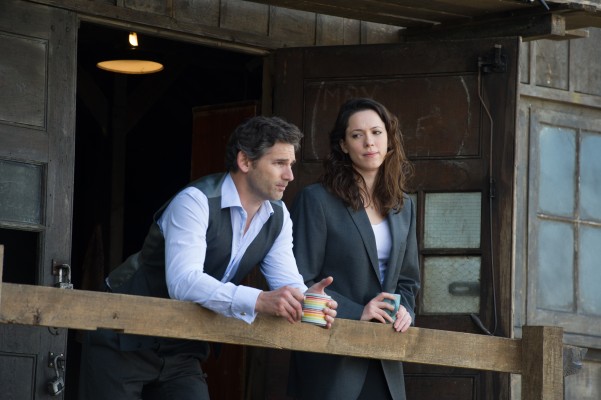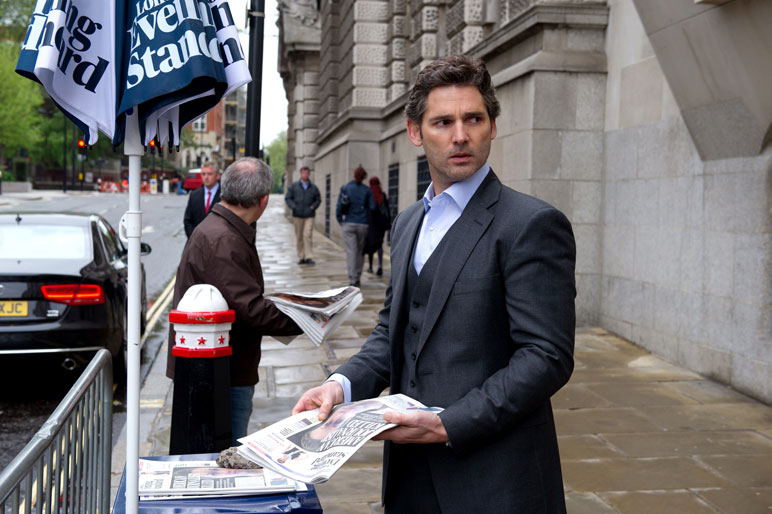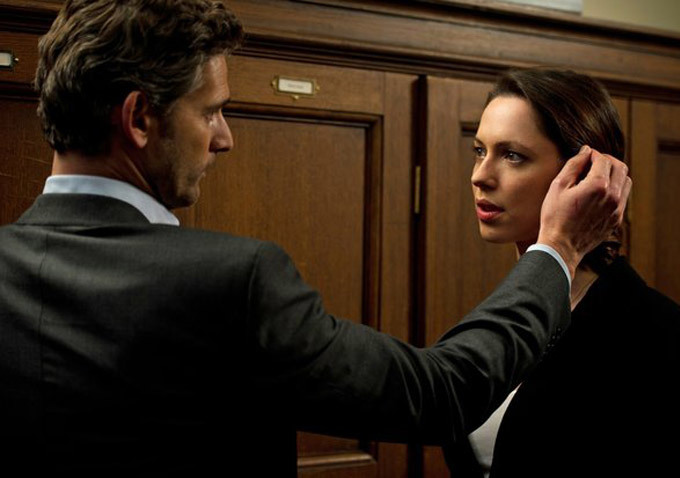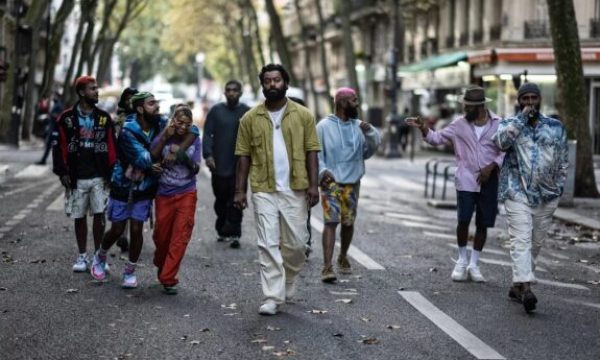 UK born director John Crowley’s (Intermission) latest film “Closed Circuit” opens with all of the paranoid intrigue necessary for a taut international thriller. A colossal bomb goes off in central London, people scream and run in large-scale panic, and an unknown terrorist group brings one of the largest cities in the world to its knees. These are all scary situations anyone can relate to because they actually happen every day around the world.
UK born director John Crowley’s (Intermission) latest film “Closed Circuit” opens with all of the paranoid intrigue necessary for a taut international thriller. A colossal bomb goes off in central London, people scream and run in large-scale panic, and an unknown terrorist group brings one of the largest cities in the world to its knees. These are all scary situations anyone can relate to because they actually happen every day around the world.
After the dust settles, and the real fiction begins, Crowley’s less than thrilling crime drama is wrought with poor characterization, unfulfilling storytelling, and one of the most forced on-screen romances I have seen at the theater recently.
Where certain stories easily translate across the Atlantic, “Closed Circuit” is very much a drama rooted in British ideology, not American. The film takes place in modern day London, where there are apparently more CCTV cameras — think Big Brother is watching you — than trash on the street.
Before digressing into an all out assault on British government as a whole, Crowley’s crime drama begins with an exploration into the dark side of high profile court cases in Britain. For an American with absolutely no knowledge of the British legal system — such as myself — Oscar nominated screenwriter Steven Knight (Dirty Pretty Things) makes sure to provide ample exposition detailing the many intricacies of British law.
the dark side of high profile court cases in Britain. For an American with absolutely no knowledge of the British legal system — such as myself — Oscar nominated screenwriter Steven Knight (Dirty Pretty Things) makes sure to provide ample exposition detailing the many intricacies of British law.
By telling a story that needs a twenty minute introductory social studies lesson, Knight is forced to take precious screen time away from the film’s two leads: Eric Bana (Munich) and Rebecca Hall (The Town).
Eventually, however, we do find out that Bana and Hall play two lawyers that have been teamed up together as part of the defense group for the terrorist being held responsible for the prologue’s bomb attack. Outdated legal rules, however, restrict the two from communicating during the court proceedings — which is complicated even more because they are former lovers.
While we spend most of the narrative with Bana’s Martin Rose character, he is only given surface level characterization. In the film’s 96 minute running time, the lone tidbit of backstory we get from the man is his messy divorce. Hall’s Claudia Simmons-Howe is just as bad. We see her at her apartment all of twice in the movie, and both times she is more concerned with the drink in her hand than offering the audience a look at her domestic lifestyle. It’s ironic that a movie that is principally about the pitfalls of government voyeurism fails to reveal anything intimate about its protagonists.
 Bana and Hall’s ice-cold chemistry definitely doesn’t add to Knight’s lack of character identification. Knight never capitalizes on the pair’s relationship, and all but forgets about any romance during the second act. Yet even in the few supposedly intimate situations the two are afforded, the pair comes off as being clumsy and awkward. Bana, especially, opts for creepy, as opposed to sensual whenever he finds himself in close corroders with his female counterpart.
Bana and Hall’s ice-cold chemistry definitely doesn’t add to Knight’s lack of character identification. Knight never capitalizes on the pair’s relationship, and all but forgets about any romance during the second act. Yet even in the few supposedly intimate situations the two are afforded, the pair comes off as being clumsy and awkward. Bana, especially, opts for creepy, as opposed to sensual whenever he finds himself in close corroders with his female counterpart.
“Closed Circuit’s” shortcomings all revert back to one tried and true cinematic concept: ‘show don’t tell.’ Crowley spends too much time telling the audience about all of the violent, interesting events in the story instead of showing us. However morbid it sounds, when a key supporting character dies, I want to see him or her — I won’t spoil it for you here — die! In its place, Crowley endlessly harps on superfluous story events that don’t push the narrative forward.
John Crowley remembers all of the politics, but forgets to bring the intrigue in his film “Closed Circuit”. The only edge-of-your-seat thrill “Closed Circuit” achieves comes from all of the audience members that can’t wait to rush to the parking validation machine once the end credits begin to roll.
By David Morris














